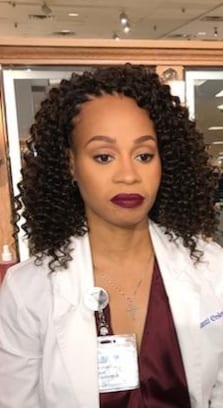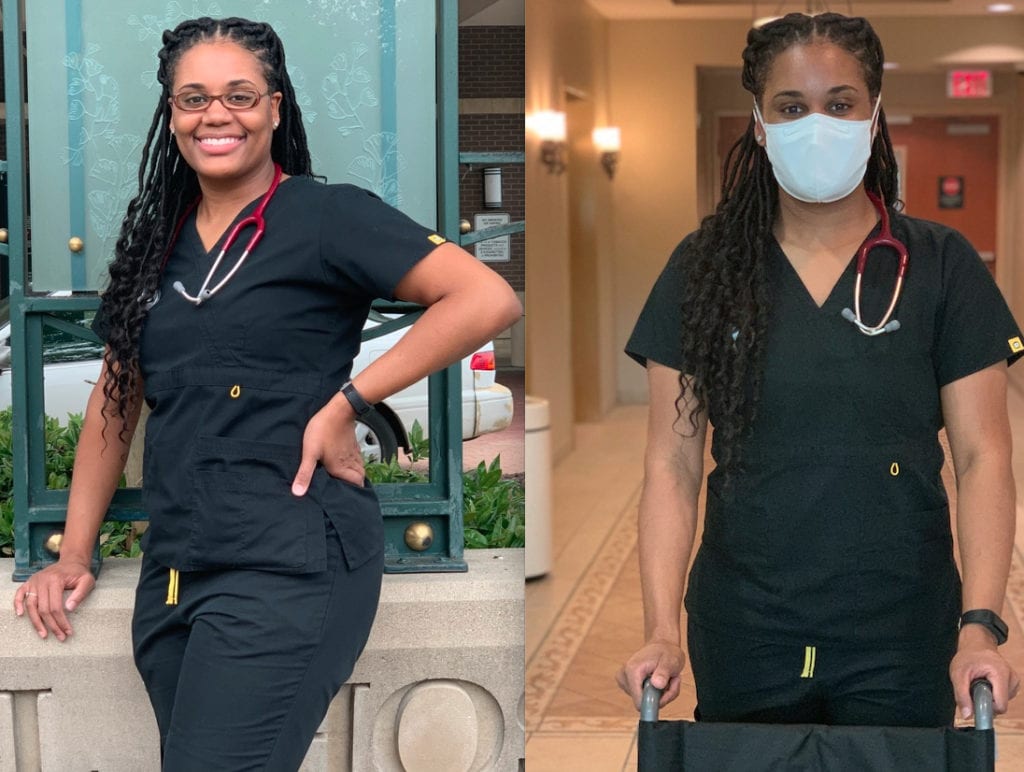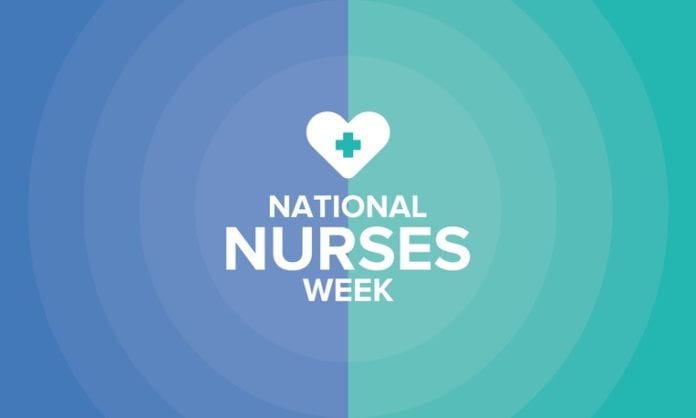The COVID-19 virus hit home for nurse Rachel Clayton a few weeks ago when she and her husband, who is an emergency medical technician, decided one of them had to quit.

“This is a decision we had to make because we have three young children and we are trying to reduce the possibility of exposure,” Clayton said.
Clayton joked that now she has a house husband because in his work status, he usually works one day a month. The rest of his time is devoted to his children.
The pandemic is ongoing amid National Nurses Week. It’s especially appropriate now since so many nurses and other medical professions here and around the world are being sickened by the virus or dying from it while caring for COVID-19 patients.
In 1982, President Ronald Reagan signed a proclamation on March 25, proclaiming “National Recognition Day for Nurses to be May 6, 1982. In 1991, the recognition was expanded to a week-long celebration of nurses on May 12, Florence Nightingales’ birthday.
As of Wednesday afternoon, there were 2,948 Wednesday reported virus cases in Shel- by County, up from 2,922 Tuesday, according to the Shelby County Health Department. The number of reported deaths from COVID-19 complications in Shelby County rose from 57 to 58.
Statewide, there were 13,938 confirmed cases of COVID-19 on Wednesday, up from 13,624 on Tuesday. As of Wednesday after- noon, a reported 239 people have died in Tennessee from COVID-19 complications, accord- ing to the state health department.
Clayton works on the fifth floor at Region One Health Medical Center, where some COVID-19 patients are treated. While trying her best to take care of them, she acknowledges times when she “feels so helpless.”
Clayton said her advice to everyone is to practice social distancing. She said it is the best way to stay safe from COVID-19.
“Take this serious, because it is serious” she said.
Ashanti Coleman
Ashanti Coleman is a traveling nurse practitioner, who gives COVID-19 tests in the drive-thru testing facilities in Frayser, at the Agricenter, in Bartlett and on Tiger Lane.

Coleman said what frustrates her about the situation is that because so little is known about COVID-19, there is nothing to tell the patients to reassure them. Also, the distance created by the protective masks and extra safety garments hinders bonding with the patient.
“We can’t give them that special touch,” she said.
“We feel helpless because of the unknown,” said Coleman, a University of Memphis graduate and instructor. “It’s stressful for everyone because of the unknown. We can’t educate them about something we don’t know about.”
Coleman said one woman, who drove through the line with three children, reported testing positive for COVID-19 before and was hoping that this test would come back negative so she can go back to work at a nursing home.
But Coleman said the work is rewarding in other ways.
“They (patients) are still very appreciative of what we do, “she said. “People thank us all the time. It’s comforting to know they are in our corner.”
Coleman said she is happy to get experience with drive-through testing because the system they use here in Memphis is heavy on sanitation and workers are given as much cleaning materials as they need.
“I heard a few horror stories about not hav- ing enough equipment,” she said.
The COVID-19 pandemic has shown once again that nurses are the tip of the spear when it comes to fighting sickness and disease.
Like cold and flu bugs, the virus is spread via droplets when a person coughs or sneezes. The droplets land on surfaces and are picked up on the hands of others and spread further. People catch the virus when they touch their infected hands to their mouth, nose or eyes.
That is why, in testing, swabs are used in the inside of the nose or mouth, and can be uncomfortable. But the nurses say their patients don’t complain about it.
It follows that the single most important thing you can do to protect yourself is keep your hands clean by washing them frequently with soap and water or a hand sanitizing gel. Health authorities also are urging people to stay six feet or more apart when moving around outside your home and to wear a face mask.
Crystal Shotwell

Crystal Shotwell, a nurse practitioner at Baptist Hospital, said she has only tested a few patients for COVID-19. She works in the triage area of the labor and delivery unit, where in the past she has not needed to.
Now all patients coming into Baptist Hospital have to be tested. Shotwell said she has worried for her co-workers and friends on the front lines, working with patients, who deal with this virus daily.
“I’ve had some friends affected by it,” Shotwell said. “Some have been quarantined. It’s scary because we’ve never had this to happen before.
“When it comes to this virus there is still a lot we don’t know.”


